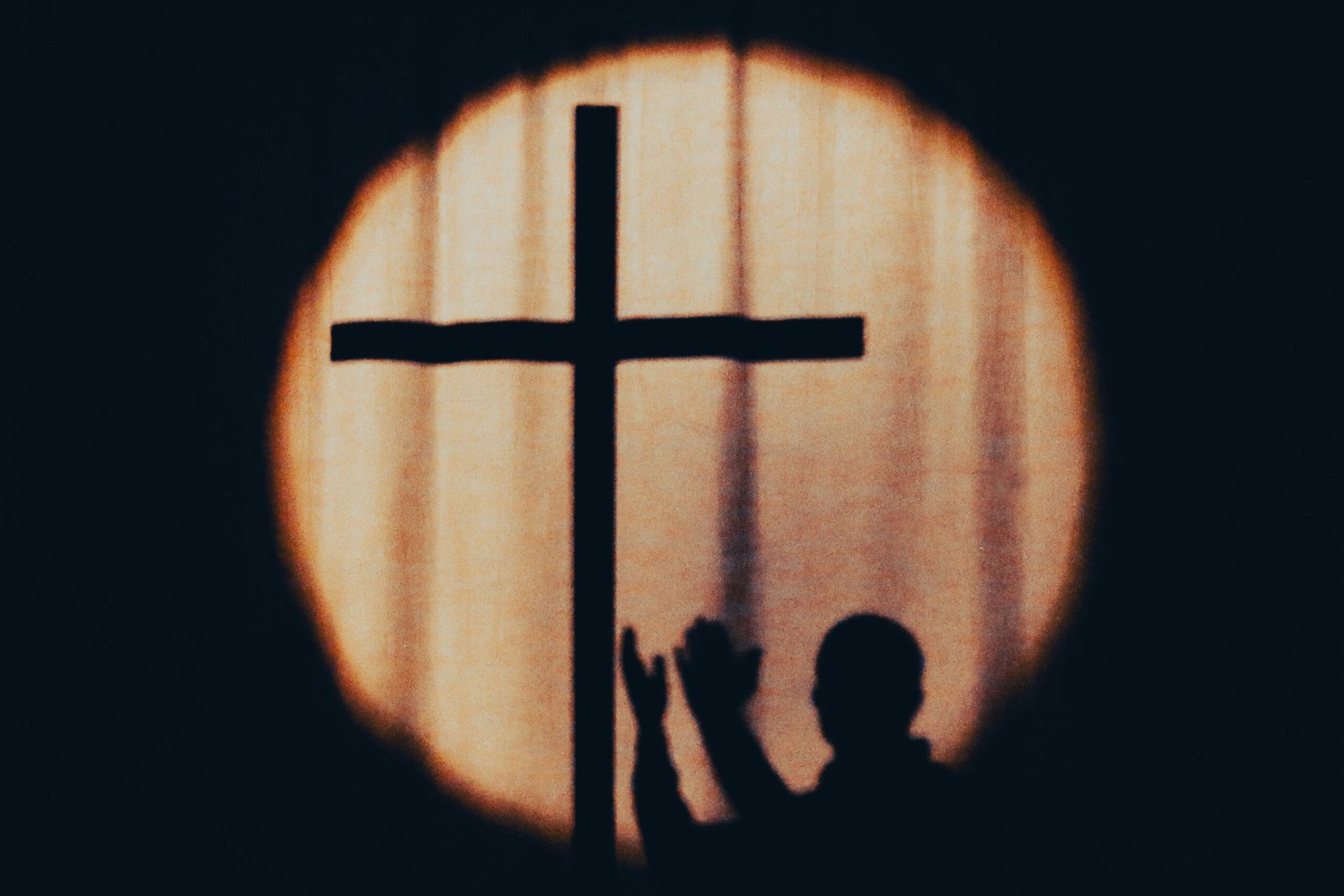
p. Luis CASASUS | President of the Idente Missionaries
Rome, April 02, 2023 | Palm Sunday
Is 50: 4-7; Phil 2: 6-11; Mt 26: 14-27,66.
The personal meditation that each of us has to make on today’s Gospel goes beyond any reflection that can be written. Perhaps for this reason, I dare to share two sentiments of what reading the Passion of Christ suggests to me today. One is the power of innocence and the other is the fourth of the so-called “Seven Words” that Jesus spoke on the Cross: My God, My God, why have You forsaken Me?
Neither wise words, nor the greatest effort imaginable, nor the most spectacular generosity, have all their possible force if they are not accompanied by true innocence. I think the following story illustrates this well.
A century ago, the bishop of Notre Dame Cathedral in Paris was a great evangelizer who tried to reach out to unbelievers, scoffers, and cynics. He liked to tell the story of a young man who would stand outside the cathedral and shout derogatory slogans at the people entering to worship. He would call them fools and other insulting names. The people tried to ignore him but it was difficult.
One day the parish priest went outside to confront the young man, much to the distress of the parishioners. The young man ranted and raved against everything the priest told him. Finally, the priest addressed the young scoffer, saying: Look, let’s get this over with once and for all. I’m going to dare you to do something and I bet you can’t do it. And of course the young man shot back: I can do anything you propose, you white-robed wimp! The priest said: Fine, all I ask you to do is to come into the sanctuary with me. I want you to stare at the figure of Christ on His cross, and I want you to scream at the very top of your lungs, as loudly as you can. ‘Christ died on the cross for me, and I don’t care one bit’.
So the young man went into the sanctuary, and looking at the figure, screamed as loudly as he could: Christ died on the cross for me, and I don’t care one bit. The priest said: Very good. Now do it again. And again the young man screamed, with a little more hesitancy: Christ died on the cross for me, and I don’t care one bit. The priest replied: You’re almost done now. One more time. The young man raised his fist, kept looking at the crucifix, but the words wouldn’t come. He just could not look at the face of Christ and say those words any more.
The real punch line came when, after he told the story, the bishop said: I was that young man. That young man, that defiant young man was I.
As we look at the violence, corruption, and crime in the news, TV shows and movies… and perhaps in our own lives, it can seem that innocence is a quality that is easily lost and, sometimes intentionally, taken; and that we can become desensitized to the effects of evil or negative influences.
But Jesus taught that to enter the kingdom of heaven, we must become as little children (Mt 18: 3). He was not referring to age or physical size; he was referring to the qualities present in our thought – such as innocence – that can bring our lives into accord with heavenly harmony. Jesus loved little children because of their freedom from wrong and their receptiveness of right.
God created man in His own image. Our purity, our innocence, derives from God’s, innocent love. And it is true that we can recover our innocence, which will make our neighbor see in us the reality of divine filiation. In spite of our mediocrity and our limitations, in spite of the fact that the other person has little faith, he will be able to benefit from our innocence in the same way that we benefit from the innocence of the Crucified One, even if it is on a smaller scale, in the smallness of our life.
It is necessary to realize that it is precisely innocence that produces peace, as we all experience when we contemplate children at play. And it is precisely about this peace, built on innocence, that Christ said: Blessed are the peacemakers, for they will be called children of God.
This explains why the centurion who stood at the foot of the cross and who was a stranger to the Jewish religion and culture, exclaimed: Truly, this was the Son of God!
And in practice, what should we do? The answer is nothing new, but it is important that we recognize its relevance: to live authentically the Evangelical Counsels of Poverty, Chastity and Obedience.
Surely, because they are virtues that can be easily contaminated by our non-innocent, hidden, mixed or little conscious intentions. This is something that does NOT happen with other possible defects or vices, because they become immediately visible, for example vanity, anger or laziness. It is convenient to keep in mind this difference and to remember that the Evangelical Counsels are always contemplated as the gate to Charity; among other things, that is why they are in our Ascetical Examination before the point of Vinculum.
—ooOoo—
We know that Christ was not complaining, but was in prayer, reciting Psalm 22, when he cried out: My God, My God, why have You forsaken Me?
Many times attempts have been made to explain this painful cry which, of course, is not a complaint, but the expression of one who has accepted to suffer the greatest possible pain, the pain that we sinners experience: the impression of remoteness from God. In the circumstances in which he found himself, abandoned, betrayed, tortured and suffering terrible agony, his lament is of one who wishes to dedicate body and soul to contemplate and enjoy his heavenly Father.
At first it seems hard to believe, but in our spiritual life we participate in that pain, which becomes the deepest Purification (Transverberative) that the Holy Spirit carries out in our spirit.
One of the manifestations of Transverberative Purification is precisely the Negative Contemplation of God, the overwhelming presence in our mind of the reality of evil, of the lack of mercy in the world and in our heart, which is compatible with our sometimes feeling deep compassion for someone.
The manifestations of this purification make us aware of what is sometimes called “distance” or “silence” from God. Thus, we feel a deep distress when we see our capacity to sin, the possibility that we have to do so if we find ourselves in favorable situations…. It is not that He is distancing Himself from us, but that we are still far from listening to Him with total freedom.
Segregation is one of the experiences of our lack of freedom, of our lack of inner unity. Even if we have no recollection of a concrete fault in the foreground of our memory, we feel the inner division, the coexistence of the purest desires and the persistent call of the world, our capacity to unite ourselves to the things (call them bad or good) that it offers us, but that have nothing to do with the Kingdom of Heaven. This Segregation produces a pain in our Unitive Faculty, because we feel this lability, this capacity to be subdued by our passions, by the world and, finally, by the devil.
During Holy Week, this becomes particularly visible when the same people who shout Hosanna! will soon afterwards exclaim, Crucify him!
Then, our will suffers something more violent than contrariety, what we call Abhorrence of oneself, because we realize the impossibility of uniting ourselves fully to God while we are in this world. We would like to escape from this prison, from these irons, as St. Teresa of Avila once said.
Sometimes, a real Abhorrence of God occurs, but it is important to remember that this is not a fault, it is not a sin. It happens to souls who sincerely and intensely desire to be united to God, but at the same time feel the pain (not only the belief) that this union takes place in the way and at the rhythm that God Himself marks. Thus we learn that our desires, however good they may seem to us, must submit to His, that an ever greater degree is necessary in abnegation…of myself.
Let us not think that this Transverberative Purification is only for a few “chosen” souls. The Holy Spirit -let us remember- does not rest and offers us continually to participate in his unspeakable groanings (Rom 8: 26), to remind us that God is impatiently waiting for us. This pain opens the door to a life full of Inspiration, makes us particularly sensitive to all the signs that God allows us to discover in events, souls, joy and pain.
This purification is necessary, it is not a luxury, for without it we cannot see the signs that the Holy Spirit offers us. It is especially intended for the baptized, that is, for those of us who are called to be apostles, for our lack of sensitivity does not allow us to see how our neighbor thirsts for God. We are dazzled by the vices and virtues of others, their good and bad actions, their passions and ours.
Perhaps it happens to us like the prophet Jonah, who did not imagine that the inhabitants of the corrupt city of Nineveh could one day approach God. We lack patience, we lack faith. Jonah repented and became instrumental in the conversion of the great city. Deep in their hearts they were waiting for the coming of God, they were thirsting for Him without knowing it, without saying it with those words, but they needed a testimony, a word, a guide, who on that occasion took some time to set out on the road.
Let us not abandon God because of our laziness, comfort or lack of patience. Our neighbor will be a victim of it. I am reminded now of a little story that shows the value of our prayers, even if they seem to us to be poor, limited. But it is enough to raise our eyes to God the Father. He is listening.
The village priest was a holy man so each time the people were in trouble they had recourse to him. He would then withdraw to a special place in the forest and say a special prayer. God would always hear his prayer and the village would be helped.
When he died and the people were in trouble they had recourse lo his successor who was not a holy man but knew the secret of the special place in the forest and the special prayer. So he said: Lord, you know I am not a holy man. But surely you are not going to hold that against my people? So listen to my prayer and come to our assistance. And God would hear his prayer and the village would be helped.
When he too died and the people were in trouble they had recourse to his successor who knew the special prayer but not the place in the forest. So he said: What do you care for places, Lord? Is not every place made holy by your presence? So listen to my prayer and come to our assistance. And once again God would hear his prayer and the village would be helped.
Now he too died and when the people were in trouble they had recourse to his successor who did not know the special prayer or the special place in the forest. So he said: It isn’t the formula that you value. Lord, but the cry of the heart in distress. So listen to my prayer and come to our assistance. And once again God would hear his prayer and the village would be helped.
If the Holy Spirit groans and weeps, will He not understand our prayer of intimate weeping for others, not mixed with distractions and ideas of our own?
_______________________________
In the Sacred Hearts of Jesus, Mary and Joseph,
Luis CASASUS













